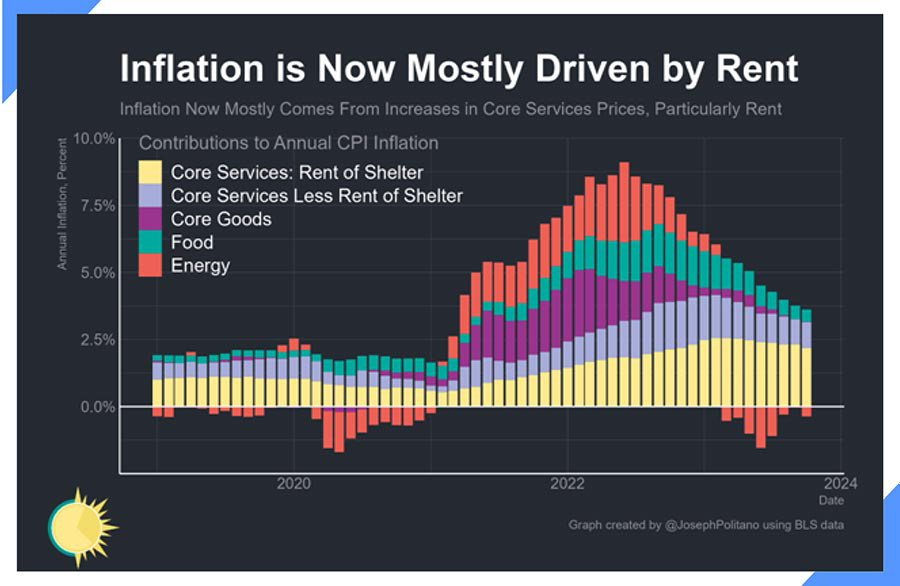
The Problem
Housing price pressures have been building for a long time. From 1970 to 2010, the median price of a home increased almost three times faster than median wages. With housing costs surpassing wage growth, it’s clear that housing has been a consistent driver of inflation.

With regulations making it harder and more expensive to build new housing, we’ve identified three main areas of housing affordability reform: zoning, innovation in housing types, and leaning into globalization.
Recommendations
Zoning Reform
- MIXED-USE: Local governments should allow more mixed-use zoning that combines commercial, residential, retail, and office space.
- PLEX REFORM: State governments should legalize duplexes or triplexes on any lot that currently allows a single-family home.
- UPZONING: Local and/or state governments should reduce minimum lot sizes and should provide the water/sewer infrastructure to make that feasible.
- TRANSIT-ORIENTED DEVELOPMENT: Local and/or state governments should reduce parking minimums.
Housing Type Innovation
- Cities should embrace and welcome the Five-Over-One apartment building (five stories of residential floors over a commercial-use floor).
- States should modify their International Building Codes (IBCs) to allow for more affordable construction while maintaining fire safety provisions.
- Congress should promote an accelerated rollout of mass timber, and the 26 states that have not already adopted the 2021 IBC updates on mass timber should do so as soon as possible.
- The National Institute for Standards and Technology (NIST) should create a model building code that allows for smaller and more prefabricated elevators.
- Congress should pass a law clarifying that the Department of Housing and Urban Development (HUD) has the right to legalize single-room occupancy buildings on any site it chooses in any state with a homelessness rate above 40 per 10,000 residents.
Globalization
- Congress should amend 19 U.S. Code §1677 (7) – which governs trade remedy law – to ensure that imposing antidumping and countervailing duties does not impose greater hardship on American consumers than it does benefits to American producers.
- Given that undocumented migrants represent 23% of all construction workers, the President should not order immigration authorities to conduct mass deportations.
For a more detailed analysis of the problems facing housing and our proposed solutions, read the full Democratic Cost-of-Living Report.


